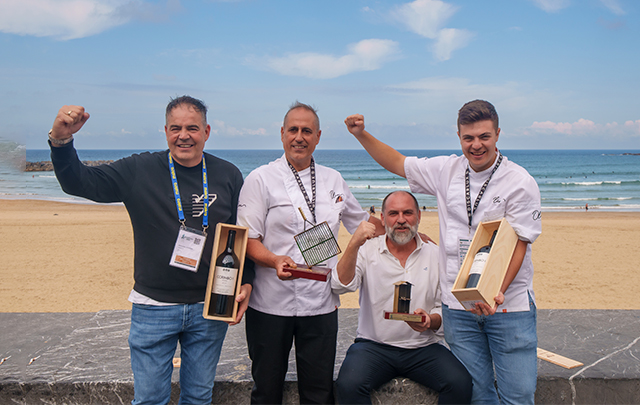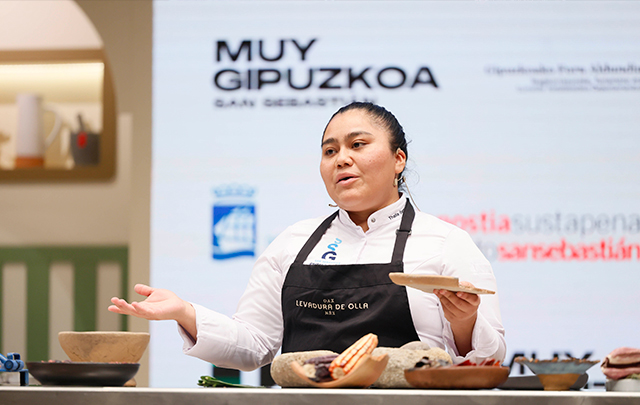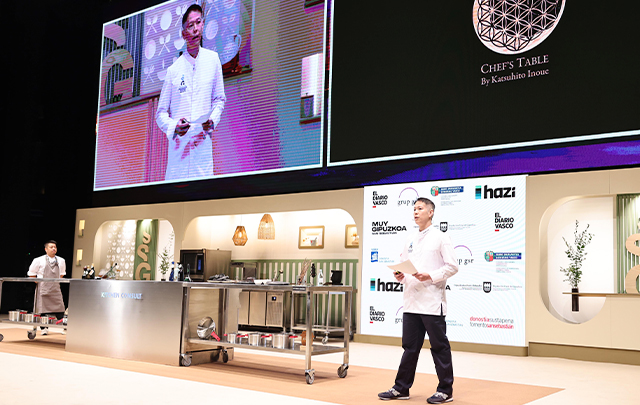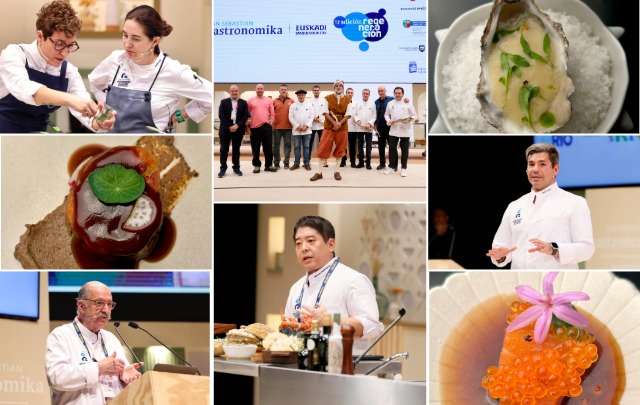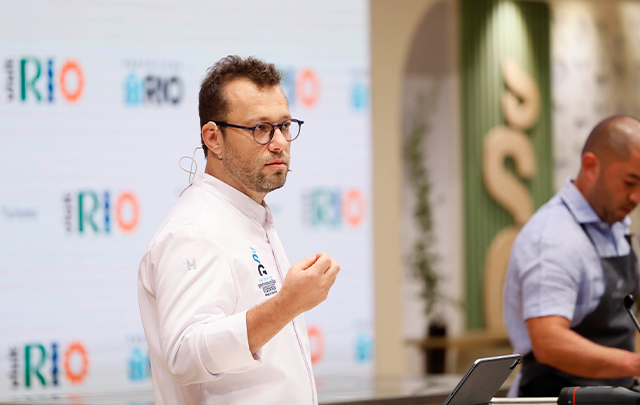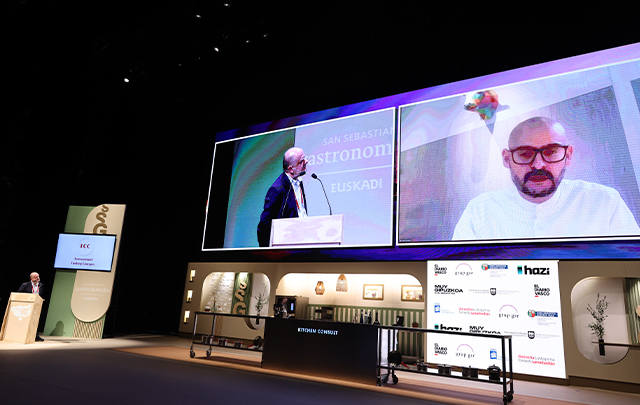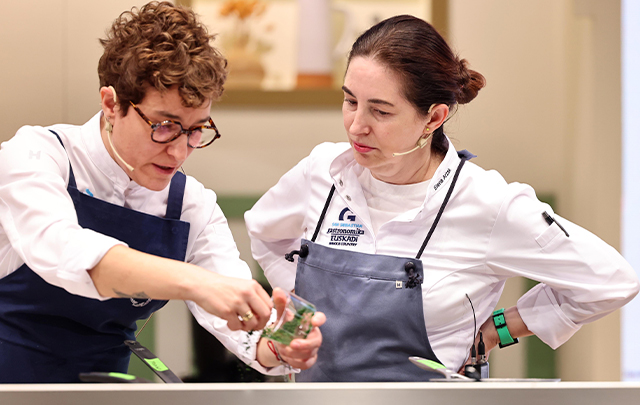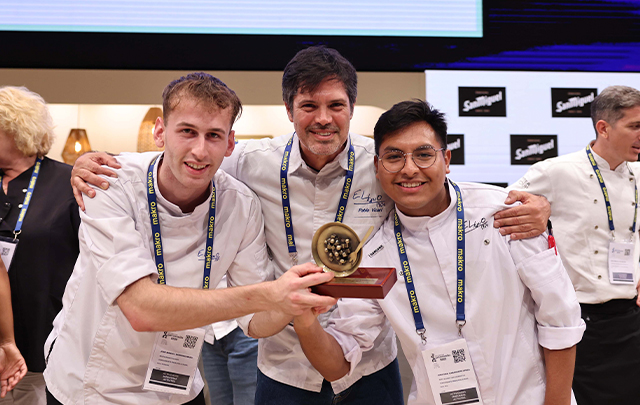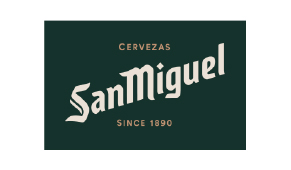News
The Tavern Forum discusses the profession of tavern owner, the role of taverns in the 21st century, and the diversity of business models
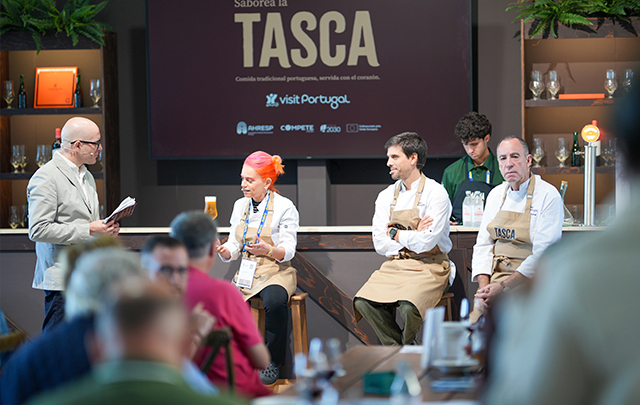
On the second day of the San Sebastián Gastronomika Tavern Forum, it was confirmed that this forum, focusing on Spain's most popular and abundant restaurant businesses, has arrived at a crucial moment for the future of bars and eateries. Gentrification and the conversion of many cities into virtual tourist attractions is an additional problem on top of rising costs and staff shortages. According to the speakers, these issues are causing significant changes in the way taverns operate, affecting everything from opening hours and human relations to the way food is prepared.
Miguel Ángel Laredo, who owns and founded the Laredo tavern in Madrid with his brothers, spoke about the changes that the hospitality industry is undergoing. “Taverns are beginning to disappear; there is no generational replacement,” he warned. He explained that foreign customers 'have somewhat alienated the traditional clientele'. 'They are even changing the way we cook,' he said, although he did acknowledge that they have brought forward the opening hours.
He acknowledged that the long hours in the hospitality industry are 'a deterrent for younger generations', but believes that gentrification is the most damaging factor. ‘A new type of restaurateur has entered the scene who no longer sees the business as their home, but as an investment. They offer things that go beyond food and drink, such as décor and entertainment, and customers seek these things out.’
Another problem is the exponential increase in rental prices resulting from property speculation. Our premises were bought by a Portuguese investment fund. We are trying to renovate, but we can't even talk to them and they are asking for unaffordable amounts. Another issue is finding housing for our waiters. I have 30 people on staff, and every day they live further away. Split shifts are now impossible and staff are more tired from commuting than from working."
The next speaker was chef Benito Gómez. Recognised for the two Michelin stars awarded to his restaurant Bardal in Ronda, Gómez has run Tragatá, a bar with branches in Ronda and Málaga, for 20 years. He said, “I don't cook Andalusian or Catalan cuisine; I cook my own food, which is that of a Catalan living in Andalusia”.
Gómez addressed the same problem as Laredo, but from the perspective of a chef. “Often, people can't see themselves offering distinctive cuisine in their bar; they'd rather serve bao buns and hoisin sauce because that's what customers want.” He referred to the trend for show restaurants in places like Madrid and Marbella where ‘everyone is gorgeous and the food doesn't matter’, and also reflected on the increase in costs. 'Before, someone with a successful bar could make a considerable profit. Now, however, costs are very high and margins are very small. If we raise prices, customers accuse us of being too expensive.'
The Taberna Bar El Pimpi is an exception to the crisis that many traditional bars seem to be experiencing. Located in a historic building in the heart of Málaga's historic centre, this establishment began its current history in 1971 and is full every day. Elena Cobos, the daughter of one of the founders and the current manager of El Pimpi, spoke about the tavern as a cultural embassy. She explained that the key to the wine bar's evolution into a kind of cultural embassy has been to remain true to its essence while adapting to meet the demands of today's customers.
“The secret is authenticity; there is no other formula. El Pimpi is Málaga, El Pimpi is kilometre zero. My father has vegetable gardens that supply El Pimpi with produce, including the famous tomatoes from Coín.” To a certain extent, you have to go back to your roots so as not to lose your identity,” he said. Another secret of El Pimpi's success is taking care of its employees. ‘Everyone complains about staffing problems, but we don't have them; our employees retire with us. We achieve this by paying fair wages, offering good working conditions, and providing training.'
Taverns have a thousand faces and speak a thousand languages. The Tavern Forum examined the tradition and current state of the Portuguese tasca in a presentation entitled 'Saborea la Tasca' (Taste the Tasca), promoted by AHRESP, Visit Portugal, Compete 2030 and the EU. The ambassadors of the tasca and the 'petisco' (generally, dishes to share) were Catarina Nascimento, who worked at Diverxo for years before returning to Portugal, Rui Lima Santos and Vítor Sobral. They explained that taverns are helping to preserve traditional cuisine by offering a new perspective that is both faithful and light-hearted, making the most of products and making them tasty and attractive to eat.
The most characteristic expression of the tavern on the island of Tenerife is the guachinche. Originally, these were rustic farms with their own vineyards that were permitted to sell their wine alongside some homemade food at certain times of the year. In a presentation promoted by Turismo de Tenerife, Jéssica Martín from Guachinche Ramón (La Orotava) and Tenerife winemaker Tomás Mesa talked about the past and present of these rural taverns.
“In the guachinche, everything is cooked in a caldero,” said Jéssica, who explained that these establishments are subject to special regulations, such as limitations on the types of drinks they can serve. "The guachinche's clientele has always been local, but in recent years we have seen more and more foreigners," she noted. Tomás Mesa pointed out that the quality of the wines is also evolving and improving, 'although they are family wines with their own personality'.
Emiliano García's presentation, “Multigenerational taverns: how to breathe new life into a century-old tavern”, focused on the generational transition and the ability to maintain a century-old tavern over time. García is the manager of Casa Montaña, a Valencian bar and restaurant founded in 1836 as an evolution of a shop selling products to sailors. García believes that ‘the key to everything is passion and continuous learning, because you have to walk the path of excellence, but be aware that you will never reach the end’.
He believes that aspects such as product and service certification, task specialisation, staff training, and improving working conditions for employees and collaborators are key to the company's success and modernisation.
The day ended with a roundtable discussion on bars committed to quality products. The panellists were Paco Aguilar from Taberna Belmonte in Granada, Carles Abellan from Bar Vint i Quatre in Barcelona, and Sacha Hormaechea. A type of bar that has contributed to preserving traditional and local cuisine was also discussed: the roadside bar or tavern. Raúl Barroso, the soul of Las Esparteras — a 24-hour roadside restaurant offering everything from breakfast and tapas to sandwiches and excellent roast lamb or suckling pig — was the speaker.
There was also time for the presentation of the Jamones Solera Carrasco 2021 Limited Edition: twenty unique pieces, each weighing over ten kilos, that have been cured for five years. As usual, chef David de Jorge acted as brand ambassador alongside the Tanacho brothers and Guillermo Carrasco.



